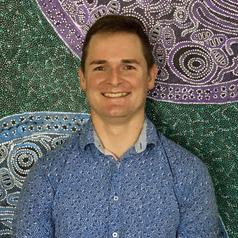
Alistair McTaggart
Research Fellow, The University of Queensland
Alistair is a mycologist and fungal geneticist. He studies magic mushrooms and how their genetic diversity can be manipulated to benefit humans. He has research experience in Australia, Europe, South Africa, and the United States.
Less ![]()
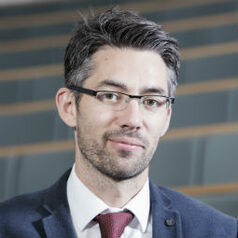
Alistair Rieu-Clarke
Professor of Law, Northumbria University, Newcastle
Professor Rieu-Clarke's research interests lie in the interface between international law, sustainable development and transboundary waters. Alistair’s research has taken him to many of the major transboundary river basins in the world, and he has conducted several major multi-disciplinary research projects in Europe, Southern and Eastern Africa, Central America and South-East Asia. Since September 2017, Alistair has been working as a legal advisor to one of the UN agencies responsible for the implementation of the SDGs, namely the United Nations Economic Commission for Europe (UNECE). As well as working for UNECE on SDG6.5.2 (transboundary water cooperation), Alistair has assisted in the implementation of the pilot reporting mechanism under the Convention on the Protection and Use of Transboundary Watercourses and International Lakes.
Less ![]()
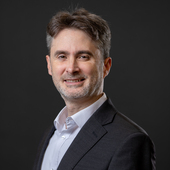

Alister Hart
Chair of Academic Clinical Orthopaedics, UCL
Professor Alister Hart is the UCL chair of orthopaedics and a consultant orthopaedic hip surgeon Royal National Orthopaedic Hospital NHS Trust and Cleveland Clinic London.
He trained at Caius College, Cambridge University, and then Guy's and St Thomas' Hospitals and the Royal National Orthopaedic Hospital (RNOH, Stanmore, London). He has had 2 research impact case studies for the 2014 REF, “Hip replacements: Changes to health policy and regulation”, and the 2021 REF, “Making joint implants safer by identifying causes of previous failures”.
He leads a research team of clinical orthopaedic engineers, based at the UCL Stanmore Campus & RNOH NHS Trust, focussed on implant science (includes the London Implant Retrieval Centre (LIRC)), surgical imaging technology and exercise science. His research has featured in the media:
The BBC nicknamed him the “Hospital Hip Detective” and BBC Radio 4 interviewed him for his work on implant science.
His exercise science work has featured in:
The Guardian 2024
Runner’s World, Jan 2024
The Times 2023
The Washington Post 2022
The Times 2020
The New York Times 2019
Less ![]()

Alister McKeich
Lecturer and Researcher in Law, Criminology and Indigenous Studies, Victoria University, Victoria University
Alister McKeich (Ali MC) holds a Master in Human Rights Law and teaches into Indigenous Studies, Law and Criminology. He is also a photojournalist, working for Al Jazeera and the Indigenous-owned Koori Mail (among other publications and exhibitions), and has lived and worked across many First Nations' communities in law, story-telling and music. As a non-Indigenous ally, Ali is privileged to work in these spaces locally as well as with diverse communities abroad.
Less ![]()


Alix Woolard
Dr Alix Woolard has a Ph.D. in Psychology and researches ways to better understand and treat childhood trauma. Dr Woolard is a senior researcher at Embrace at Telethon Kids.
Less ![]()
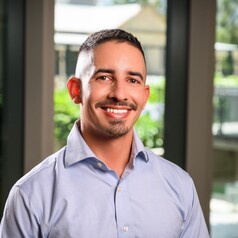
Aljosha Karim Schapals
Senior Lecturer, Queensland University of Technology
Dr Aljosha Karim Schapals (FHEA) is a Senior Lecturer in Journalism and Political Communication in the School of Communication of Queensland University of Technology (QUT) in Brisbane, Australia, as well as a Chief Investigator in the Digital Media Research Centre (DMRC).
He also serves as Book Review Editor for Media International Australia, a Q1-ranked journal in the field of media and communication studies.
Previously, he worked as a Visiting Lecturer in the Department of Journalism at City, University of London. Additionally, he has experience as a practising journalist working for the Financial Times as well as the German government organisation Federal Agency for Civic Education.
His research interests lie in the changes taking place in news production and consumption as a result of the internet, with a particular focus on social media and verification, algorithms and automation in contemporary news production, as well as political communication more broadly.
Less ![]()

Allan Albig
Associate Professor of Biological Sciences, Boise State University
Researcher, educator, author. I believe that education and understanding are the keys to human survival. I strive to communicate complex science in a way that everyone can understand.
Less ![]()
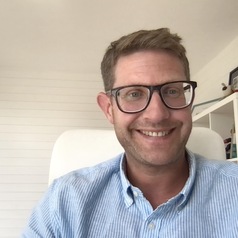
Allan Jepson
Senior Lecturer and Researcher, University of Hertfordshire
I am a multidisciplinary researcher interested in contemporary leisure experiences and wellbeing. This includes research in gerontology, tourism, festivals and events, family sociology, family management, marginalisation, mental health and wellbeing, neurodiversity, equity of experiences and human rights.
Less ![]()
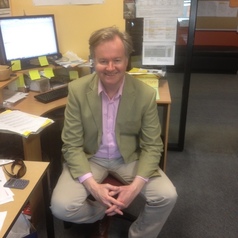
Allan McCay
Law Teacher, University of Sydney
Allan McCay is an Affiliate Member of the Centre for Agency, Values, and Ethics, at Macquarie University and teaches at the University of Sydney Foundation Program.
He has taught at the law schools of the University of Sydney and the University of New South Wales, and the Business School at the University of Sydney. Allan trained as a solicitor in Scotland and has also practiced in Hong Kong
He completed his PhD at the University of Sydney in 2013 and his thesis considered the ethical and legal merits of behavioural genetics based pleas in mitigation in sentencing. He is interested in free will, philosophy of punishment and the criminal law’s response to neuroscience.
Less ![]()
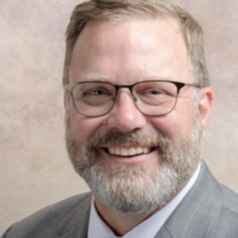
Allan Post
Deputy Superintendent, Texas A&M Maritime Academy, Texas A&M University
Since 2009, Captain Allan F. Post has served the Texas A&M University at Galveston (TAMUG) as its Executive Director of Marine Education Support and Safety Operations. In 2019, he assumed additional responsibilities as the Deputy Superintendent of the Texas A&M Maritime Academy, reporting directly to the TAMUG Chief Operations Officer and Academy Superintendent.
As a member of the University and Academy leadership team, Captain Post directs a diverse team of professionals dedicated to maritime operations, overseeing the federal training ship, research and academic vessels, and the USCG-approved cadet licensing program. While at Texas A&M, he has guided several large construction projects, including shoreline stabilization following Hurricane Ike, the Clipper Pier service life extension, and marina construction.
He currently serves as the owner's representative supporting the construction of the forthcoming Lone Star State pier and shoreside infrastructure project on campus. Throughout his maritime education and operations career, Captain Post steered the team for four newbuild vessels, including large and small passenger vessels, and has overseen the refit of several others.
Starting with his appointment in 2019, Captain Post has been closely involved with the State Maritime Consortium, TAMU government relations, and the Texas Congressional delegation in their successful efforts to lobby for federal funding to construct a fleet of training ships and the related shoreside infrastructure needs.
In addition to his maritime responsibilities, Captain Post also leads the Galveston Campus' emergency operations, serving as its emergency management coordinator. He successfully led the response efforts for the evacuation and reconstitution of Hurricanes Harvey and Laura and the historic 2021 ice storm.
Captain Post is an alumnus of the State University of New York Maritime College with Bachelor of Science degrees in Meteorology and Oceanography (1997). He holds numerous maritime licenses, including a Master 1600 ton inland and Great Lakes motor or steam vessels license, a Master (Non-Navigating) Passenger Carrying Barges license, and a Third Mate unlimited tonnage upon oceans. He graduated from the University of Texas Lyndon B. Johnson School of Public Affairs Governor's Executive Development Program (2013) and the Texas A&M University Master of Maritime Business Administration program (2016).
In 2017, TAMUG bestowed Captain Post with the exclusive William Paul Ricker Memorial Award for Outstanding Achievement of a Staff Member in honor of his extraordinary leadership at the Galveston Campus.
Less ![]()
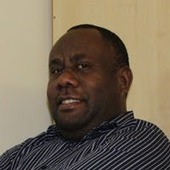
Allan Rarai
PhD Candidate in Environmental Management, The University of the South Pacific
Less ![]()
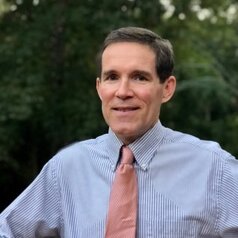
Allan Steigleman
Associate Professor of Ophthalmology, University of Florida
Dr. Allan Steigleman spent more than 25 years in the U.S. Navy as an ophthalmologist, where he developed a keen interest in a variety of eye-related topics.
Since joining the University of Florida, he has expanded his academic pursuits in ophthalmic conditions. His areas of interest include LASIK eye surgery, ocular trauma, refractive surgery, cataract surgery and more.
Less ![]()

Allanah Hunt
Lecturer, Aboriginal and Torres Strait Islander Studies Unit, The University of Queensland
Allanah Hunt is a Barkindji and Malyangapa writer, editor and academic. She is passionate about social justice, mental health and First Nations storytelling. She has published short stories and won several awards, and in her PhD, used the Marvel Cinematic Universe to create an original Indigenous female superhero to explore ownership of women’s bodies and Unremarked Whiteness.
Allanah is a junior editor on the black&write! project, State Library of Queensland. She is also a research assistant at University of Queensland.
Less ![]()
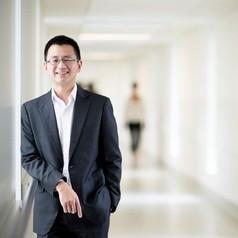
Allen Cheng
Professor in Infectious Diseases Epidemiology, Monash University
Allen Cheng is a specialist in infectious diseases and an epidemiologist. He is Professor/Director of Infectious Diseases at Monash Health and the School of Clinical Sciences at Monash University in Melbourne, and is involved in the treatment of patients with infectious diseases, and providing advice to governments on communicable diseases control. He is also involved in in surveillance for influenza-related hospital admissions through the FluCAN system, based at 21 hospitals nationally. He was previously Deputy Victorian Chief Health Officer, and a past Co-Chair of the Australian Technical Advisory Group on Immunisation and the Advisory Committee for Vaccines.
Less ![]()
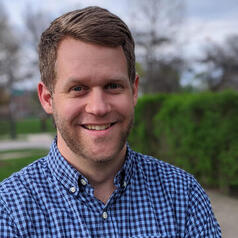
Allen Sabey
Clinical Assistant Professor, Marriage & Family Therapy Program, Northwestern University
Allen K. Sabey, Ph.D., LMFT, is a Clinical Assistant Professor at Northwestern University and a core faculty member in the Master of Science in Marriage & Family Therapy program. He completed his M.S. degree in Marriage and Family Therapy and his Ph.D. in Human Development and Family Studies at Auburn University. He also completed a postdoctoral clinical research fellowship at The Family Institute at Northwestern University.
Dr. Sabey maintains an active empirical research lab (Emotional Availability & Responsiveness LabExternal link:open_in_new) aimed at understanding how and why family members provide care and support for one another, especially in times of distress. The goal of his research project is to increase emotional availability and responsiveness within families. He utilizes both quantitative and qualitative methodologies and draws from attachment theory and emotion processing principles as his theoretical foundations. He has presented at national and international conferences and has published on the nature of family relationships in numerous academic journals, including Family Process and Journal of Family Psychology.
Less ![]()
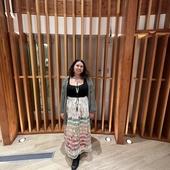

Allison Anderson
Lecturer in tourism planning and development, CQUniversity Australia
Tropical cities are my research area, especially how many are developing from being the 'supporting act' to the 'main event' for tourists. My research looks particularly at how tropical cities are innovating their urban landscapes to move beyond the traditional huts, colonial-style architecture, beaches and palm trees and emerge as complex and cosmopolitan sites of tourist and resident activity.
I recently submitted my PhD through James Cook University on Urban design and tourism in the tropics. I have worked as a tourism research and development consultant and strategic planner for a number of years, and hold a BSc (Hons) (Geography) from Victoria University of Wellington, NZ (1998).
Less ![]()
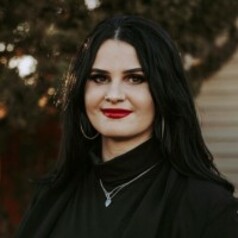
Allison Christy
Graduate Research Assistant, Boise State University
Allison is finishing her PhD in Materials Science and Engineering from Boise State University. She holds undergraduate degrees in Environmental Chemistry and in Political Science, and has a passion for applying her technical skills to tackle sustainability problems.
Less ![]()

Allison Felker
Senior Researcher - MBRRACE-UK, University of Oxford
Allison works as a senior researcher for MBRRACE-UK based out of the National Perinatal Epidemiology Unit (NPEU) at the University of Oxford. Allison received her PhD in Reproductive Biology from Queen's University, Kingston, Canada and BSc (Hons) in Biomedical Sciences from the University of Waterloo, Waterloo, Canada.
Less ![]()
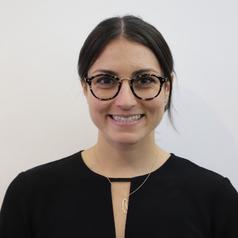
Allison Gaines
PhD Candidate in Public Health and Epidemiology, Imperial College London
In her academic career, Allison is a PhD Candidate in Public Health and Epidemiology at Imperial College London, where she is developing a method and prototype for determining the environmental impacts of packaged foods and beverages, aimed at informing sustainable food policy. She holds her Masters in Global Health and Epidemiology from the University of Oxford and her Bachelors in Information Science from Cornell University.
Allison has become highly-accomplished in her 10 years of experience in healthcare data management, execution and data analytics, specializing in clinical analysis and healthcare systems technology and recognized for driving innovation in electronic medical record interoperability. Allie worked at Aetion on strengthening client experiences using their real-world evidence platform and at Athena Health driving innovation on their interoperability with other healthcare platforms using HL7 standards.
Less ![]()
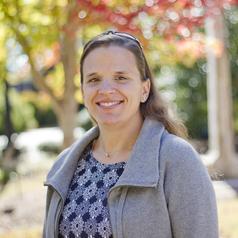
Allison Garefino
Research Scholar; Clinical Director of Children and Family Programs, Kennesaw State University
Dr. Garefino is a graduate of the University of Pittsburgh and earned her Ph.D. in clinical Psychology from the State University of New York at Buffalo. She is the Clinical Director of the Children and Family Programs (CFP) and Research Scholar in Wellstar College of Health and Human Services at Kennesaw State University (KSU). She was a Part-Time Assistant Professor in the psychology department of KSU, and the recipient of their Part-Time Distinguished Teaching Award three years in a row. Her clinical and research interests include increasing the dissemination and effectiveness of behavioral interventions for the treatment of the disruptive behavior disorders across multiple settings.
Less ![]()
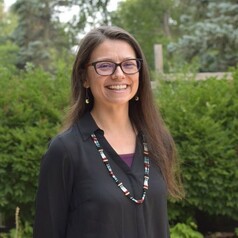
Allison Kelliher
Assistant Professor, Department of Family & Community Medicine, University of North Dakota
Allison Kelliher, MD, is Koyukon Athabascan, Dena, from Nome, Alaska. She is the Director of the American Indian Collaborative Research Network (AICoRN), a Practice-Based Research Network at the University of North Dakota School of Medicine and Health Sciences where she is also an Assistant Professor. She also serves as faculty at the University of Washington School of Medicine and University of Alaska Anchorage and serves on the Board of Directors for the Association of American Indian Physicians. She is the first and only physician trained as a Traditional Healer in a Tribal Health setting and weaves this into her practice as a Family and Integrative Physician. She is a board member for the Association of American Indian Physicians, and University of Alaska Fairbanks Alumnus of the year. She recently published a chapter in a textbook Walking Together, Working Together Engaging Wisdom for Indigenous Well-Being.
Less ![]()
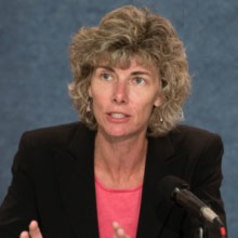
Allison Macfarlane
Allison M. Macfarlane is Professor of Science and Technology Policy at George Washington University and Director of the Center for International Science and Technology Policy at the University’s Elliott School of International Affairs. She recently served as Chairman of the U.S. Nuclear Regulatory Commission from July, 2012 until December, 2014. As Chairman, Dr. Macfarlane had ultimate responsibility for the safety of all U.S. commercial nuclear reactors, for the regulation of medical radiation and nuclear waste in the U.S., and for representing the U.S. in negotiations with international nuclear regulators. She was nominated by President Obama and confirmed by the Senate. She was the agency’s 15th Chairman, its 3rd woman chair, and the only person with a background in geology to serve on the Commission.
Dr. Macfarlane holds a doctorate in geology from the Massachusetts Institute of Technology and a bachelor's of science degree in geology from the University of Rochester. During her academic career, she held fellowships at Radcliffe College, MIT, Stanford, and Harvard Universities. She has been on the faculty at Georgia Tech in Earth Science and International Affairs and at George Mason University in Environmental Science and Policy.
From 2010 to 2012 she served on the Blue Ribbon Commission on America's Nuclear Future, created by the Obama Administration to make recommendations about a national strategy for dealing with the nation's high-level nuclear waste. She has served on National Academy of Sciences panels on nuclear energy and nuclear weapons issues. Dr. Macfarlane has also chaired the Science and Security Board of the Bulletin of Atomic Scientists, the folks who set the “doomsday clock.”
Her research has focused on environmental policy and international security issues associated with nuclear energy. Her expertise is in nuclear waste disposal, nuclear energy, regulatory issues, and science and technology policy. As Chairman of the Nuclear Regulatory Commission, she pushed for a more open dialogue with the public, for greater engagement with international nuclear regulators and, following the Fukushima accident, for stricter safety protocols at U.S. nuclear reactors. She also advocated for a more family-friendly workplace. She has spoken on a wide range of topics, from women and science to nuclear policy and regulatory politics.
In 2006, MIT Press published a book she co-edited, Uncertainty Underground: Yucca Mountain and the Nation's High-Level Nuclear Waste, which explored technical issues at the proposed waste disposal facility at Yucca Mountain, Nevada. Dr. Macfarlane has published extensively in academia and her work has appeared in Science, Nature, American Scientist, The Bulletin of Atomic Scientists, and Environment Magazine.
Less ![]()
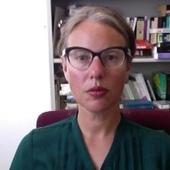
Allison Perlman
Associate Professor of Film & Media Studies, University of California, Irvine
Less ![]()
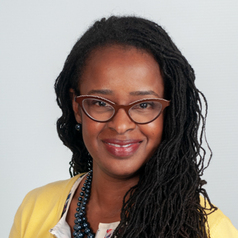
Allison Bryant Mantha
Associate Professor of Obstetrics, Gynecology and Reproductive Biology , Harvard University
Dr. Bryant Mantha’s clinical, research, and health policy interests concern racial, ethnic, and socioeconomic disparities in obstetrical care and pregnancy outcomes. She is particularly interested in expanding health care coverage of women’s health and family planning before and between pregnancies as a means to improving birth outcomes for underserved women. She pursued additional research methodology training at University of California, San Francisco (UCSF), and completed a KL2 award at UCSF and an Amos Medical Faculty Development Award through the Robert Wood Johnson Foundation. Her research uses mixed methods to determine barriers to and impact of interconception care on pregnancy outcomes in low-income populations.
Less ![]()

Allyson Edwards
Lecturer in Global Histories and International Relations, Bath Spa University
Allyson Edwards is a Lecturer in Global Histories and International Relations at Bath Spa University. Her research focuses on Russian militarism, particularly on youth militarisation, use of history/ memory in politics and education, and patriotic education systems. She is working on several projects related to these topics.
Less ![]()
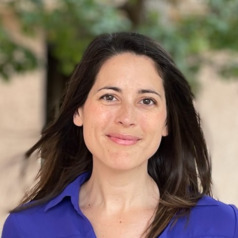
Allyson Shortle
Associate professor, American politics, University of Oklahoma
Dr. Shortle is an associate professor at the University of Oklahoma, where she studies group identity in the context of American political behavior. She also serves as a faculty member for Latinx Studies and Women and Gender Studies. She runs OU’s Community Engagement + Experiments Laboratory (CEEL), Oklahoma City’s Community Poll (Exit Poll), and OU’s Democracy Survey of OU freshmen. For fun, she lends research support to organizations seeking to increase civic engagement and improve the physical and mental health of their communities. At the doctoral level, Dr. Shortle teaches courses on group identity, public opinion/political psychology, and American political behavior.
Dr. Shortle’s Cambridge University Press book, The Everyday Crusade: Christian Nationalism in American Politics (2022 – w. Eric L. McDaniel and Irfan Nooruddin), examines the relationship between American religious exceptionalism and prejudicial and antidemocratic attitudes.
She is a 2024–25 Public Fellow with the Public Religion Research Institute.
Less ![]()

Allyson Snyder
Ph.D. Candidate in Communication, University of California, Davis
My research interests include the role of parents in children’s media use, children’s science learning from media, including virtual reality (VR), as well as media use for emotion regulation. I am curious about the types of media children choose to consume and how media makers can best support children's use of screens.
Less ![]()
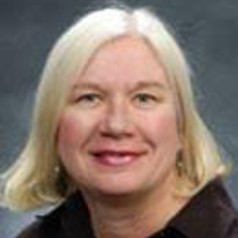
Allyssa McCabe
Professor of Psychology, UMass Lowell
Allyssa McCabe, Ph.D., is professor of psychology at University of Massachusetts Lowell. She founded and co-edited the journal Narrative Inquiry and has researched how narrative develops with age, the way parents can encourage narration, cultural differences in narration, and interrelationships between the development of narrative, vocabulary, and phonological awareness. With David Dickinson, she has developed a theoretical approach to early literacy called the Comprehensive Language Approach, which looks at ways that the various strands of oral and written language (e.g., vocabulary, phonological awareness, print knowledge) affect each other in the acquisition of full literacy. A key concern is with assessment of preschool-aged children, especially preventing misdiagnosis of cultural differences in language use as deficits. With Chien-ju Chang, she most recently published Chinese Language Narration with John Benjamins. She conducted a successful intervention with preschool children attending the Bartlett School in Lowell, enlisting graduate and undergraduate students to build the oral language skills such children need in order to learn to read and write. With Khanh Dinh, she was funded to study the narrative life stories of Latino and Cambodian high school students in Lowell. With Jana Sladkova, she was funded to study the narratives of immigrant children in Lowell.
Less ![]()

Alma Fulurija
Immunologist and the Australian Strep A Vaccine Initiative project lead, Telethon Kids Institute
Alma Fulurija is an immunologist and holds a PhD from the University of Western Australia. She has more than 15 years of experience in the biotech and pharma sectors working at the interface of academia and industry. Prior to joining ASAVI, Alma has led research and development projects both in Australia and Switzerland, most recently as Head of Research & Development at Ondek Pty Ltd., a Perth-based biotech company developing bacterial-based immunotherapies for the prevention of allergic diseases. She also held positions at Cytos Biotechnology AG in Zurich and completed postdoctoral training at the WHO Centre for Neonatal Immunology and Vaccinology in Geneva. Alma is an Adjunct Associate Professor at the University of Western Australia, where she is a researcher and lecturer in immunology and supervises post-doctoral fellows and higher degree students. Her research involves understanding vaccine development for infectious diseases such as Streptococcus pyogenes, Helicobacter pylori, otitis media and other infections.
Alma has a strong interest in translating evidence-based research into clinical outcomes and has a deep understanding of immunology, preclinical and early clinical development of vaccines and immunotherapies.
Less ![]()
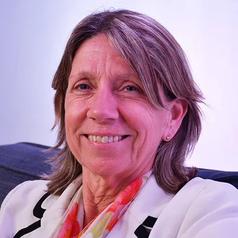
Alma Harris
Professor of Leadership in Education, Cardiff Metropolitan University
Alma Harris, FAcSS, FLSW, FRSA has held Professorial posts at the University of Warwick, University College London, the University of Malaya, the University of Bath, and she is a Professor Emeritus at the University of Swansea.
She is internationally known for her research and writing on educational leadership, education policy and school improvement. In 2009–2012, she was a Senior Policy Adviser to the Welsh Government assisting with the process of system-wide reform. She co-led the national Professional Learning Communities (PLC) programme and led on the development and implementation of a master’s qualification for all newly qualified teachers in Wales. She is a Senior Research Fellow at the Education University of Hong Kong. Professor Emeritus Harris is Past President of the International Congress for School Effectiveness and School Improvement (ICSEI), which is an organisation dedicated to enhancing quality and equity in education. In January 2016, she received the ICSEI honorary lifetime award. In 2016, she was appointed to the International Council of Education Advisers (ICEA) to offer policy advice to Scotland’s First Minister and Deputy First Minister. She is a Fellow of the Academy of Social Sciences, a Fellow of the Learned Society of Wales, and a Fellow of the Royal Society of Arts.
Less ![]()

Alma Larsdotter Zweygberg
Doctoral Researcher, Department of Global Public Health, Karolinska Institutet
Less ![]()

Almut Winterstein
Distinguished Professor of Pharmaceutical Outcomes & Policy, University of Florida
Less ![]()
- Market Data




















